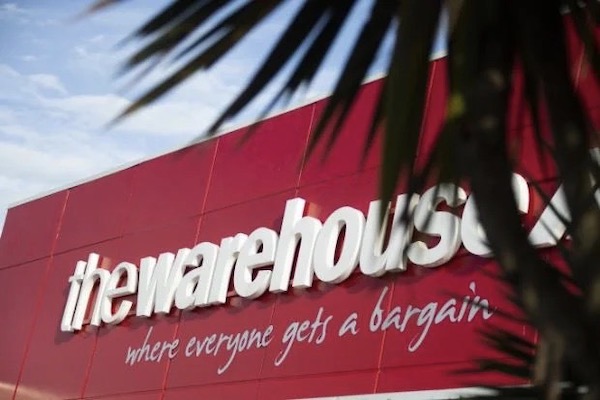Published on the 17/09/2025 | Written by Heather Wright

Slashing licensing and managed services costs…
The Warehouse Group is continuing its IT cost cutting drive with plans to slash licensing and managed services costs by up to NZ$40 million over five years through a new IT services deal.
The major New Zealand retailer – one of New Zealand has inked a multi-year deal with Tata Consultancy Services focused on streamlining and consolidating platforms, removing legacy systems and maximising value from existing investments across the end-to-end value chain as it continues its ‘turnaround’.
“[This] will unlock the capability and capacity to obtain more value from the technology investments we’ve made to date.”
The company, whose brands include The Warehouse, Warehouse Stationery and tech and appliance retailer Noel Leeming, cut systems and digital investment in the half-year to 25 January 2025. Expenditure for core systems, and other information systems plummeted from $31.4 million to just $6.8 million as it moved to reduce cost and capital expenditure in a challenging retail environment with subdued customer spending.
Then CFO, now CEO, Mark Stirton noted a 7.4 percent decrease in expenses, with lower IT and SaaS spend a key factor.
“We have made excellent progress in reducing cost and capital expenditure, but there’s more to do,” the company said at the time.
The new TCS deal will focus on ‘radically’ simplifying the company’s managed services, revamping its managed services and reducing technological complexity to lower costs and improve operational efficiency while also supporting workforce development with digital and AI upskilling.
“We’ve spent the past year lowering costs, but this partnership allows us to go deeper,” Stirton says.
“TCS will build on our current cost initiatives and unlock the capability and capacity to obtain more value from the technology investments we’ve made to date.”
He says as well as the estimated reduction of up to $40 million in licenses and managed services, the deal will free up the company’s own technology teams to focus on other work.
Developing a clear strategy to reduce tech debt, enhance platform standardisation and drive service level improvements with robust governance and transparent reporting is also planned, The Warehouse Group says.
It’s just one of a number of big tech moves the company – known for its ‘where everyone gets a bargain’ slogan – has embarked on in recent times as part of wider push to counter economic headwinds. The company logged a $54 million loss for the year ending July 2024, compared to a $30 million profit a year earlier with sales dropping from $3.24 billion to $3 billion in one of most challenging years in its 43-year history. Those figures swung to a first half profit after tax of $11.8 million for the six months ending 26 January 2025 – up from $23.7m in the same period a year earlier – but sales were down $1.6 billion on the same period a year earlier nd in July warned that Q4 sales growth was proving ‘more challenging’ as it revised EBIT guidance downwards.
Last year the company, which had more than 750 on-premises servers and infrastructure reaching the end of its useful life, announced it was migrating the bulk of its operations to Microsoft Azure in a multi-year project expected to reap ‘millions’ of dollars in cost savings over three years. The migration was to be staggered over 12 months to ensure minimal disruption to the stores. By late last year around one-third of The Warehouse Group’s applications had been moved to Azure ahead of the opening of the Microsoft cloud region in December 2024.
The company has migrated from Oracle E-Business Suite to Oracle SaaS including ERP and ERM, with Salesforce’s commerce cloud at the frontend in what it dubbed at the time as ‘probably’ the biggest technology transformation it had ever undertaken. Its brands had previously used a range of ERP offerings.
The $100 million rollout came amid increasingly tough trading conditions, which saw the company ‘reshape’ itself around its three core brands, closing its online marketplace and selling Torpedo 7 outdoor gear retailer for $1, and change its leadership.
Shayne Tong, former chief digital officer for Foodstuffs South Island, also joined TWG as its chief digital and transformation officer in August with the company keen to push that it was looking to leverage tech investments and lower operating costs to improve competitiveness and enhance customer experience.



























